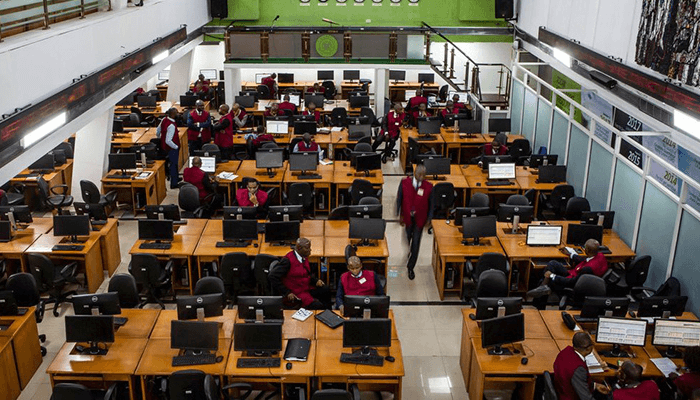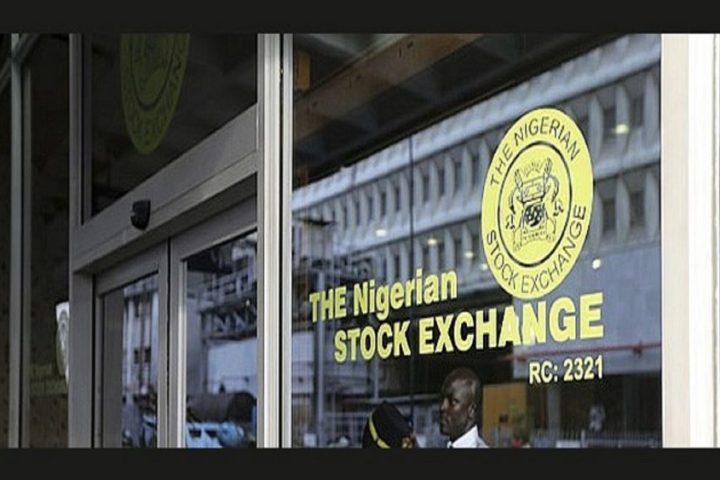Nigerian Equity Market Drops by 1.19%
On October 3, 2024, the Nigerian equity market witnessed a significant decline, with the All-Share Index (ASI) dropping by 1.19%, shedding 1,167.97 points to close at 97,064.42.
The drop marks a second consecutive session of losses, driven by a sharp reduction in market activity. The trading volume fell by 37%, with only 268 million shares changing hands, down from the 425 million shares traded the previous day.
Join our WhatsApp ChannelThe decline in market volume raised concerns among traders and investors. “This drop in trading activity shows that investors are being cautious,” said David Osagie, a stockbroker based in Lagos. “People are watching the market closely before making any big moves.”
Key Performers in the Equity Market
Despite the overall drop in the Nigerian equity market, some stocks recorded impressive gains. SEPLAT emerged as the top-performing stock, gaining 10.00% to close at N4,513.40. LIVESTOCK followed closely with a 9.93% increase, closing at N2.99. Other stocks like REGALINS, CAVERTON, and MANSARD also posted gains, with REGALINS up by 9.76% to N0.90 and CAVERTON up by 9.63% to N2.39.
SEPLAT’s strong performance was notable, given the bearish sentiment. An investor remarked, “SEPLAT’s rise shows there are still opportunities for growth in the equity market, even during a downturn.”
READ ALSO: Nigeria’s Equity Market Drops 0.33% As Investors Lose N188bn In First October Trade
Equity Market Losers: A Spotlight on DANGCEM
While some stocks gained, others saw sharp declines. DANGCEM led the pack of losers, dropping 10.00% to N478.80. MCNICHOLS and NSLTECH also saw losses of 10.00% and 7.58%, respectively. The fall of DANGCEM, one of Nigeria’s largest stocks, contributed significantly to the ASI’s overall decline.
Market analysts attribute DANGCEM’s decline to profit-taking activities following a sustained period of gains. “Investors are likely cashing in on previous gains, which is typical after strong rallies,” said market analyst Tunde Bello.
Trading Volume Declines in the Equity Market
The most striking feature of the day’s trading session was the sharp drop in market volume. A total of 268 million shares were traded, marking a significant decline from the 425 million shares traded a day before. UBA led the market in terms of volume, with 37.09 million shares traded. ZENITHBANK followed, with 19.01 million shares, while DEADCAP, STERLINGNG, and CAVERTON also saw notable trading activity.
However, despite the lower volume, the equity market still saw considerable trading value. SEPLAT led in this category, with transactions worth N2.33 billion, followed by UBA, which recorded N993.99 million worth of trades.
Large-Cap Stocks and Equity Market Outlook
Among the large-cap stocks classified under the SWOOTs (AIRTEL, BUA CEMENT, BUA FOODS, GEREGU POWER, and SEPLAT ENERGY), price movements were mostly stable. MTNN was an exception, posting a modest gain of 0.16%, while DANGOTE CEMENT fell by 10.00%.
The FUGAZ stocks (FBNH, UBA, GTCO, ACCESS, and ZENITH) saw mixed results. GTCO rose by 1.78%, and ACCESS BANK gained 1.27%. However, FBNH and ZENITH recorded slight declines, with FBNH down 4.26% and ZENITH dropping 0.13%.
As for the market outlook, traders remain cautiously optimistic. “The equity market is facing bearish pressure, but we could see a rebound if large-cap stocks attract fresh buying interest,” commented a market strategist. He added that a renewed push could help the ASI break above the 99,000-point mark, particularly if key sectors regain momentum.
What Lies Ahead for the Equity Market?
The Nigerian equity market continues to experience fluctuations, driven by both investor sentiment and global market conditions. Despite the 1.19% drop in the ASI, gains in individual stocks like SEPLAT offer hope for recovery. However, the decline in trading volume signals caution among investors, and the market’s direction in the coming days will largely depend on external factors and investor confidence.
Investors are advised to keep an eye on key market indicators, especially as earnings reports and economic data could shift the momentum.
Emmanuel Ochayi is a journalist. He is a graduate of the University of Lagos, School of first choice and the nations pride. Emmanuel is keen on exploring writing angles in different areas, including Business, climate change, politics, Education, and others.
- Emmanuel Ochayihttps://www.primebusiness.africa/author/ochayi/
- Emmanuel Ochayihttps://www.primebusiness.africa/author/ochayi/
- Emmanuel Ochayihttps://www.primebusiness.africa/author/ochayi/
- Emmanuel Ochayihttps://www.primebusiness.africa/author/ochayi/


















Follow Us